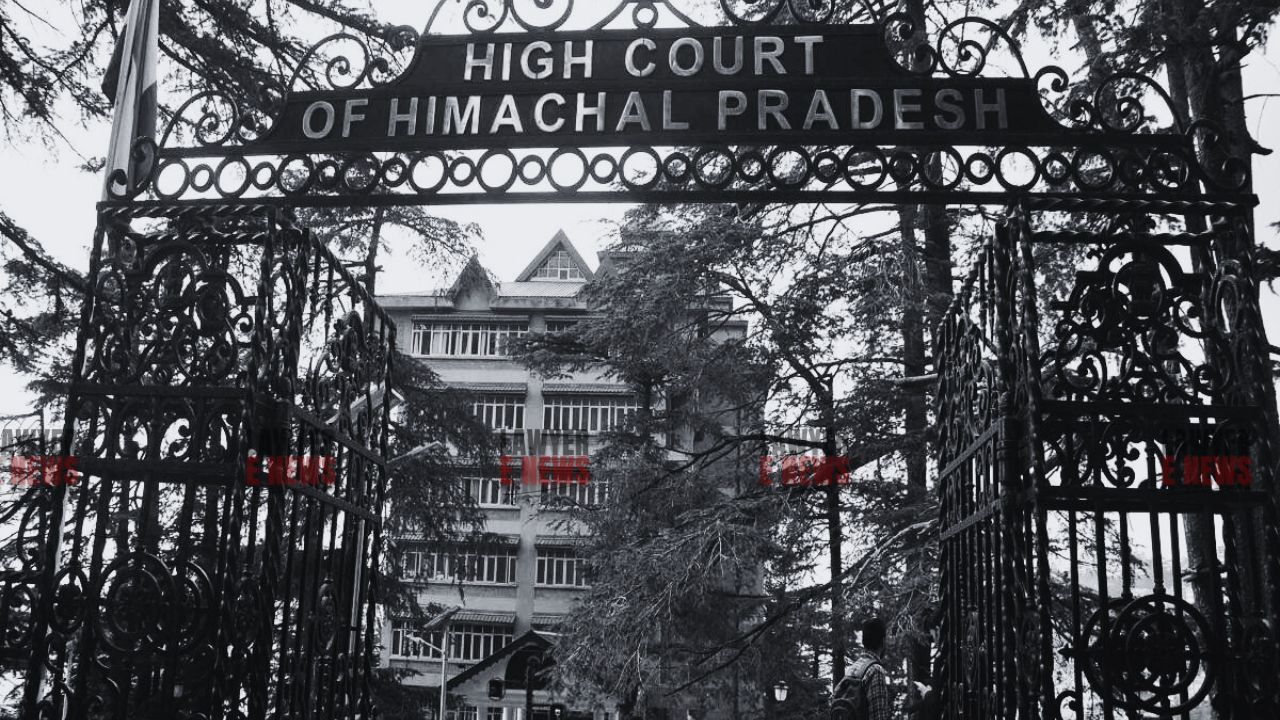-
by Admin
15 February 2026 5:35 AM



Himachal Pradesh High Court acquitted the appellant of charges under Sections 377 and 506 of the Indian Penal Code (IPC) and Section 6 of the Protection of Children from Sexual Offences Act (POCSO Act). The court overturned the trial court’s conviction, holding that the lack of medical and scientific evidence corroborating the victim's allegations rendered the conviction unsustainable.
The judgment, delivered by a bench comprising Justice Tarlok Singh Chauhan and Justice Rakesh Kainthla, emphasized the importance of corroboration in cases involving allegations of sodomy, especially when medical evidence contradicts the victim's version. The court also highlighted procedural irregularities, including reliance on leading questions, which violated the right to a fair trial under Article 21 of the Constitution.
The case originated from an FIR registered on July 4, 2018, based on a complaint by the victim’s uncle. The victim, a 10-year-old boy, alleged that the accused, a local resident, had sodomized him in a forest while threatening him not to disclose the incident. The prosecution relied on the victim’s testimony, corroborated by his cousin and uncle, and the medical report.
The trial court, in its judgment dated January 28, 2022, convicted the accused under Sections 506 and 377 of the IPC and Section 6 of the POCSO Act, sentencing him to 10 years of simple imprisonment and imposing fines. However, the accused challenged the conviction in the High Court, arguing that the medical evidence did not support the prosecution's case.
The victim alleged in his testimony that the accused had sodomized him, causing pain in his anus. However, Dr. Aman (PW5), who conducted the victim’s medical examination, testified that there was no evidence of penetration or physical injuries, such as redness, bruising, or cuts, which are typically associated with sodomy. The Forensic Science Laboratory (FSL) report also failed to detect blood or semen, further undermining the prosecution’s case.
The court observed: “There is no medical or scientific evidence to corroborate the version of the victim; rather, the medical or scientific evidence shows that no such incident had taken place.”
The prosecution asked leading questions to the medical officer during cross-examination, eliciting responses suggesting that sodomy could not be ruled out under the broad definition of "penetrative sexual assault" in Section 3 of the POCSO Act. However, the court held that leading questions were impermissible during examination-in-chief and violated the principle of fair trial, citing the Supreme Court’s judgment in Varkey Joseph v. State of Kerala (1993 Supp (3) SCC 745).
The High Court stated: “The Prosecutor shall not be allowed to frame questions in such a manner to which the witness answers merely ‘yes’ or ‘no’; but he shall be directed to give evidence which he witnessed… [This] is illegal and unfair to the appellant, offending his right to fair trial enshrined under Article 21 of the Constitution.”
The court reiterated that while the testimony of a child victim carries significant weight, it must be corroborated by independent evidence, especially when the medical evidence contradicts the victim’s account. The court relied on precedents such as State (Govt. of NCT of Delhi) v. Mullah Muzib (2015 SCC OnLine Del 7228), which held that a conviction cannot be sustained in the absence of medical or scientific evidence in cases of alleged sodomy.
The court allowed the appeal, set aside the trial court’s judgment, and acquitted the accused, holding:
“In the present case, there is no corroboration to the testimony of the victim by the medical and scientific evidence, and [the accused] could not have been convicted and sentenced by the learned Trial Court.”
The court further clarified that the victim’s Section 164 Cr.P.C. statement and testimonies of his relatives did not suffice as corroboration since they were hearsay and contradicted by medical evidence.
Importance of Corroboration in POCSO Cases: Convictions for serious offences under the IPC and POCSO Act require corroborative evidence, especially where medical and scientific evidence is available and does not support the prosecution's claims.
Fair Trial Standards: Leading questions during examination-in-chief violate procedural fairness and can vitiate a conviction.
Benefit of the Doubt: When prosecution evidence is contradictory or insufficient, the accused must be given the benefit of the doubt, as reiterated in State of H.P. v. Varinder Soran (2025:HHC:560).
The High Court’s judgment underscores the critical role of corroborative evidence and procedural fairness in securing convictions in cases involving grave allegations. The appellant, Abhishek Mohammad @ Shekhu, was acquitted, and the court directed his immediate release if not required in any other case.
Date of Decision: January 10, 2025
